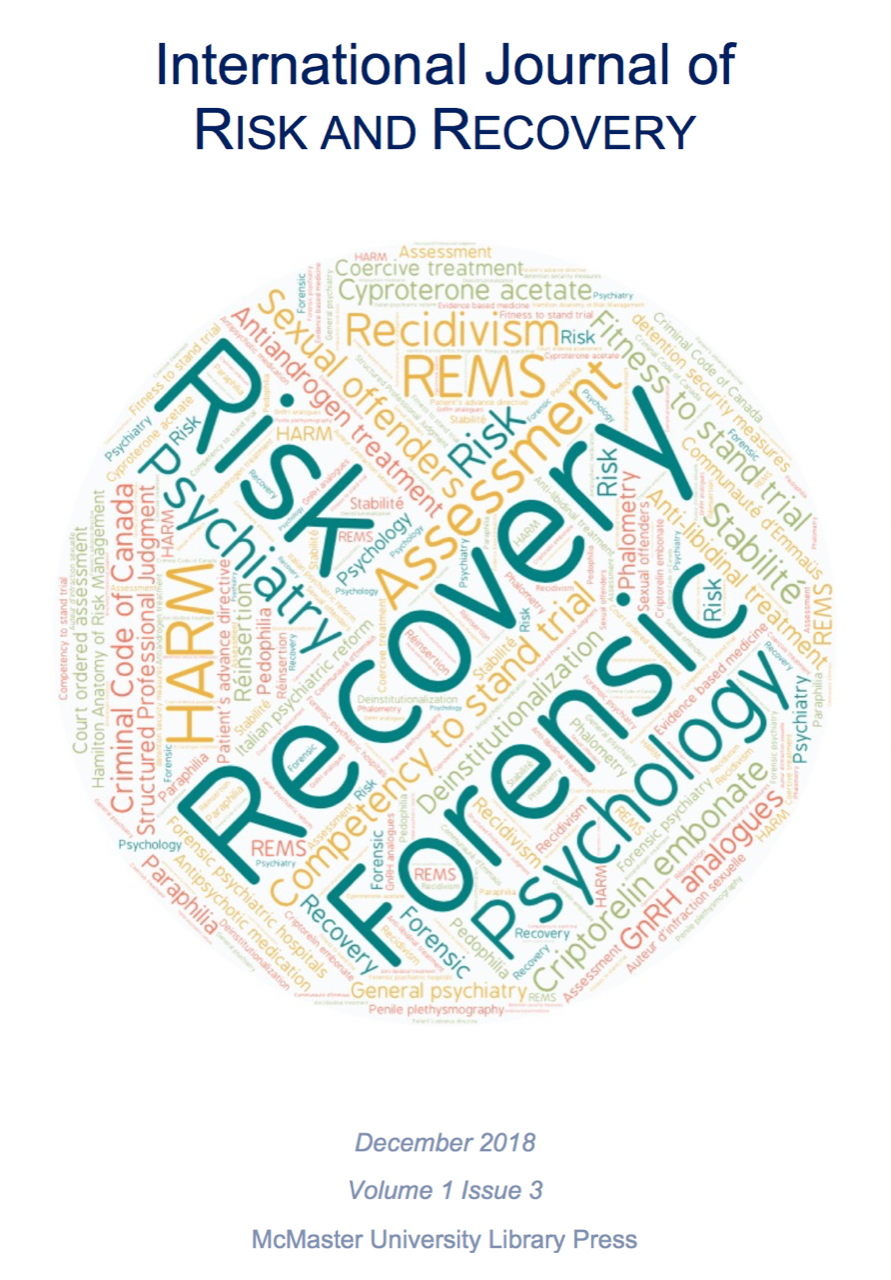Rehabilitation of sexual offenders
Perspectives and testimony of the manager of an Emmaüs community in the Centre-Val de Loire region (France)
DOI:
https://doi.org/10.15173/ijrr.v1i3.3505Keywords:
aivs, auteurs d'infractions à caratère sexuel, sexual offender, communauté d'Emmaüs, France, Rehabilitation, EmmaüsAbstract
An Emmaüs community is an association that welcomes individuals in need of shelter. These individuals can continue to live in one of the Emmaüs houses provided they contribute towards household tasks. No skills are required and everyone helps out according to their level of ability. This ensures people who present with skills deficits and/or social impairment have a place to stay. Sexual offenders released from incarceration can therefore find somewhere to live in order to begin their rehabilitation into the community. Indeed, they often present with multiple stressors, low income, and a low level of education, which are all barriers to psychosocial rehabilitation. These, combined with a limited social network and homelessness, can contribute to reoffending. The benefits of being part of the Emmaüs community can be a positive step towards psychosocial rehabilitation and provide some social stability in order to assist in acquiring further competencies to fully transition to a safe living environment.
References
Bertsch I, Marcel D, Larroque I, Chouli B, Prat S, Courtois R. Prévenir la récidive de violence sexuelle en s’intéressant aux conditions de sortie de détention des auteurs d’infractions à caractère sexuel en France ? Presse Med 2017;46(5):544-45.
Kensey A. Que sait-on de la situation socioé-conomique des sortants de prison? Revue du MAUSS 2012;40(2):147-60.
Maestracci N. Repenser la sortie de prison. Revue du MAUSS 2012;40(2):202-12.
Cortoni F. Prévenir la récidive: les programmes correctionnels. Paris, France: Conférence de consensus sur la prévention de la récidive. 2013. (consulté le 12 décembre 2018)
de Vogel V, de Vries Robbé M, de Ruiter C, Bouman YHA. Assessing protective factors in forensic psychiatric practice: introducing the SAPROF. Int J Forensic Ment Health 2011;10(3):171-7.
Ward T, Brown M. The good lives model and conceptual issues in offender rehabilitation. Psychol Crime Law 2004;10(3):243-57.
Willis GM, Levenson JS, Ward T. Desistance and attitudes towards sex offenders: Facilitation or hindrance? J Fam Violence 2010;25(6):545-56.
Downloads
Published
How to Cite
Issue
Section
License
Copyright Notice
Authors who publish with this journal agree to the following terms:
- Authors retain copyright of their work and grant the International Journal of Risk and Recovery the right of first publication with the work simultaneously licensed under a Creative Commons Attribution License. This allows others to share the work with an acknowledgement of the work’s authorship and initial publication in this journal.
- Authors are able to enter into separate, additional contractual arrangements for the non-exclusive distribution of the journal’s published version of the work (e.g., post it to an institutional repository or publish it in a book) with an acknowledgement of its initial publication in this journal.
- Authors are permitted and encouraged to post their work online (e.g., in institutional repositories or on their websites) before and during the submission process as it can lead to productive exchanges, as well as earlier and greater citation of published work. (See The Effect of Open Access.)

